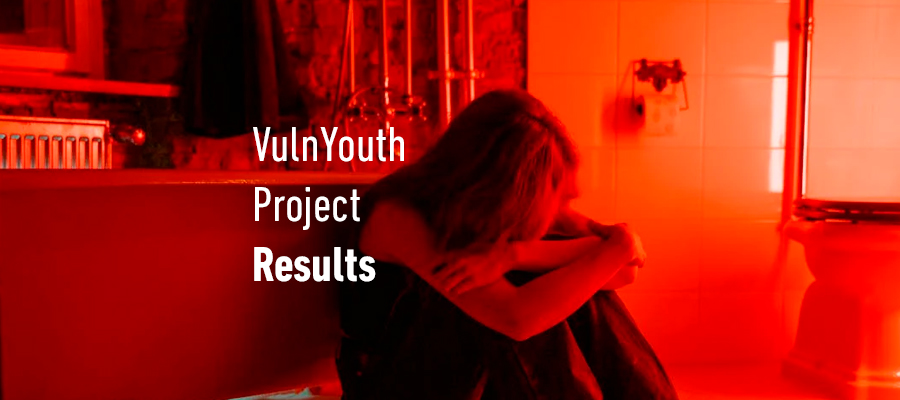THE FEELING OF PRECARIITY AFFECTS THE MENTAL HEALTH OF YOUNG PEOPLE
The VulnYouth project, with the participation of the Institute of Government and Public Policy and funding from the La Caixa Foundation, shows that the feeling of precariousness affects the mental health of young people regardless of gender, age or origin.
Barcelona, 18 November 2024
According to this study, based on more than 3,000 surveys of young Spaniards between the ages of 20 and 34, 31% of young people are at risk of depression or anxiety and 40.6% admit to suffering a physical or mental health problem due to economic insecurity. The problem is not so much unstable employment or low wages, but the perception of being in a situation of constant precariousness. This feeling is associated with the inability to meet basic needs (24%), to afford independent housing (10%), to live a dignified life (4%) and the feeling of insecurity (9%), both at work and in life in general.
Although job insecurity is not equally distributed among young people, the feeling of vulnerability is common to all young people regardless of gender, age or origin. On the other hand, 63% of respondents admit to having experienced at least one dimension of economic insecurity in the last two years and having had to make adjustments or ask for help to cover their needs; this phenomenon is unevenly distributed between social groups, unlike the feeling of precariousness. The survey was conducted between February and March 2023, a time when the social and economic consequences of the Covid pandemic were still being felt and inflation was spiralling. Both phenomena had a strong impact on young people.
In this sense, migrant women, non-binary people and people under 30 are the groups most vulnerable to economic insecurity, which, according to the results of this study, causes physical or mental health problems in 41% of the young people interviewed.
The VulnYouth project
VulnYouth analyses the effect of job insecurity on the mental health of young people using an intersectional approach. This study, led by Dr. Lara Maestripieri (UAB) and funded by the Social Observatory of the La Caixa Foundation, has involved 4 institutions (IGOP-UAB, Utrecht University, CSIC-UPV and UPF) and has involved conducting a survey (using the WHO5 scale to identify risk levels of anxiety and depression in the population) to 3,000 young people aged between 20 and 34 years throughout Spain where they were asked about job insecurity, economic insecurity and mental health. Subsequently, focus groups were held.
ADDITIONAL INFORMATION
The report to the Social Observatory of Fundació la Caixa: VulnYouth
Project file on the IGOP website: https://igop.uab.cat/wp-content/uploads/2023/01/Fitxa-VulnYouth-2022.pdf
The project in the media
PRESS
- La Razón (29/10/24). Sentirse precario causa la mala salud mental de la juventud (p. 36)
- Expansión (Ed. Catalunya) 30/10/24. La sensación de precariedad amenaza la salud de los jóvenes (p. 12)
- El Economista (31/10/24). El sentimiento de precariedad afecta a la salud mental de los jóvenes (p. 21)
- La Voz de Galicia (31/10/24) La sensación de precariedad afecta a la salud mental de los jóvenes españoles (p. 32)
- El Norte de Castilla (01/11/24). La sensación de precariedad afecta a la salud mental de los jóvenes (p. 42)
- La Rioja (02/11/24). La sensación de precariedad afecta a la salud mental de los jóvenes (p. 51)
- Expansión (04/11/24). La sensación de precariedad afecta a la salud mental (p. 37)
RADIO
- El món a Rac1 (29/10/24)
- Cadena Ser. Hoy por hoy (31/10/24)
- Cadena Ser. Aqui Catalunya (31/10/24)
- Cadena Ser. La Ventana (31/10/24)
- Cadena Cope. La Linterna (31/10/24)
ONLINE
- La Razón Digital. (29/10/24). La sensación de precariedad, causa principal de los problemas de salud mental de los jóvenes
- La Voz de Galicia. (31/10/24). La sensación de precariedad lastra la salud mental de los jóvenes españoles
- es (31/10/24). El sentimiento de precariedad afecta a la salud mental de los jóvenes
- La Voz de Asturias (31/10/24). La sensación de precariedad lastra la salud mental de los jóvenes españoles
- Cope (31/10/24). Al filo de la depresión y la ansiedad por la precariedad
- es (31/10/24). La sensación de precariedad afecta a la salud mental de los jóvenes
- Heraldo (31/10/24). La sensación de precariedad afecta a la salud mental de los jóvenes















